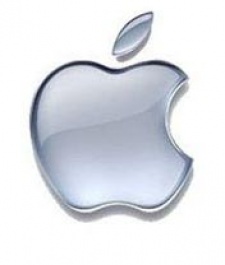TLA System's James Thomson might have been reluctant to name the party responsible for the threat of legal action over his use of Apple's in-app purchase (IAP) system, but the firm itself has decided to come forward and clarify its position.
Speaking via what would appear to be a freshly launched blog, Lodsys claims to own a collection of US technology patents it's willing to licence.
Its claim over IAPs stems back to 2003, when Dan Abelow filed an application for a patent application (as part of a series of applications dating back to 1992) that Lodsys believes governs the current IAP model utilised by developers today.
Lodsys purchased Abelow's portfolio of patents in 2004 and, in a series of blog posts posed as a Q&A session on the firm's website, now claims it is defending his creativity by contacting studios it believes have violated its patent.
Playing the pay game
"From Lodsys' perspective, it is seeking to be paid value for rights it holds and which are being used by others," the firm says on its blog.
"Using lawyers and litigation to sue is the most expensive way to sell. However companies are reluctant to pay unless they have to."
In all, Lodsys is seeking to pick up 0.575 percent of all US IAP revenue from the date the letters threatening legal action were sent to the day the patent expires. Rather loosely, the company also claims it will look to be remunerated for "applicable past usage".
"So on an application that sells $1 million worth of sales in a year, the licensee would have an economic exposure of $5,750 per year," the firm concludes.
One for one
But, the validly of its patent claims aside, it's Lodsys decision to target developers individually that has alarmed most commentators.
Speculation has suggested Lodsys believes smaller developers will capitulate and license the technology rather than see the case go to court.
In addition, however, it seems that Lodsys is claiming Apple, Google and Microsoft are already licensees of its patent, saying these companies are individually, "licensed for its nameplate products and services."
It further states, "The scope of their current licenses does NOT enable them to provide "pixie dust" to bless another (3rd party) business applications."
Piece of the pie
As to the overall impact of its action on the mobile ecosystem, Lodsys argues its motivation is purely positive.
"Our goal is to popularise the technology, have it used by many people and to make relatively small amounts per licensee, but to have the large volume of licensees aggregate to be a worthwhile business."
"Ideally, we can sell as much as possible through direct sales, rather than having to use litigation. It's less expensive and more efficient for both parties."
It concludes: "In aggregate, this cycle of patent licensing means that more invention can happen and it means that the economic profit pie is distributed more efficiently to suppliers of building blocks that are incorporated in the products or services."
[source: Lodsys]
IAP patent claimant Lodsys defends position, claims Apple, Google and Microsoft are licensees
But they can't bless thirdparty products





















